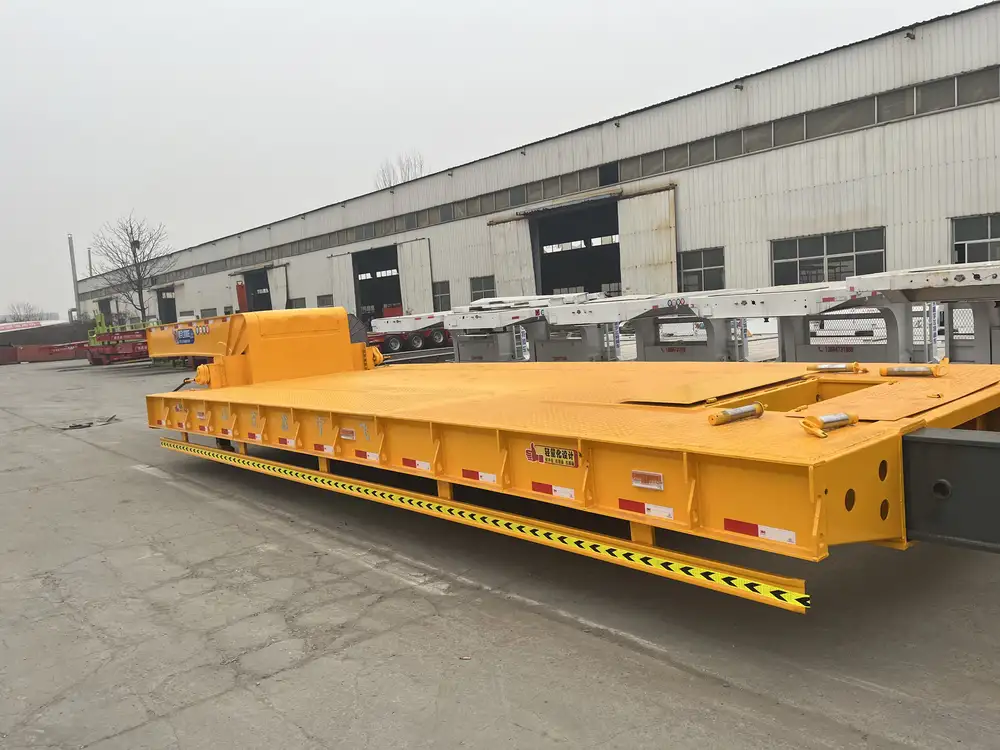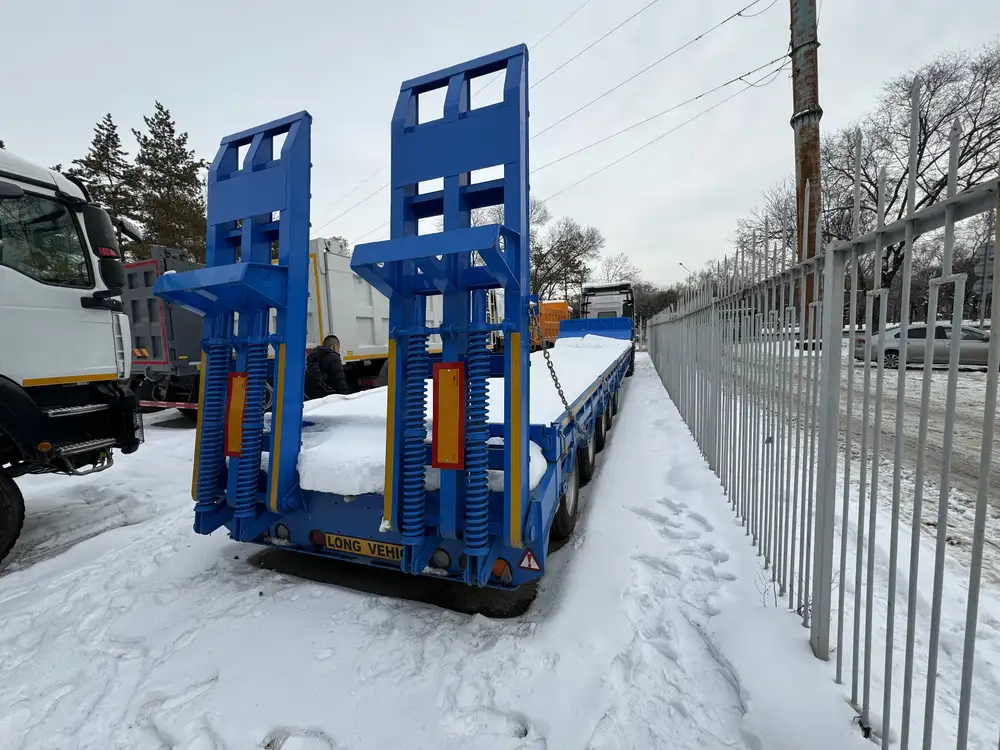Investing in a new dump trailer can significantly enhance your hauling capabilities, whether for personal projects or commercial use. However, navigating the paperwork associated with this purchase can be bewildering. Understanding the essential documents required—ranging from ownership verification to registration—is crucial for a seamless transaction. Below, we dissect the minutiae of the paperwork you will receive when buying a new dump trailer, ensuring that you are well-informed for your purchase.
1. Bill of Sale: The Cornerstone of Your Transaction
The Bill of Sale serves as the foundation for your purchase. This document validates the transaction and signifies the transfer of ownership from the seller to the buyer. Here’s what you can expect to find in a typical Bill of Sale for a dump trailer:
| Detail | Description |
|---|---|
| Buyer and Seller Information | Full names, addresses, and contact details. |
| Description of the Trailer | Make, model, year, VIN (Vehicle Identification Number), and serial number. |
| Sale Price | The agreed-upon price for the trailer. |
| Date of Sale | When the transaction occurred. |
| Signatures | Both parties must sign to validate the agreement. |
Why is it Important?
The Bill of Sale protects both the buyer and seller by providing a clear record of the transaction. It is often required for registration purposes and may serve as proof of ownership in the event of disputes.
2. Manufacturer’s Certificate of Origin (MCO)
The Manufacturer’s Certificate of Origin is particularly critical for new trailers. This document certifies that the trailer has been manufactured and is brand new, conveying essential details about the trailer as follows:
| Component | Explanation |
|---|---|
| Manufacturer Information | Name, address, and contact details of the manufacturer. |
| Description of the Trailer | Includes make, model, year, and VIN. |
| Shipping Information | Indicates where and when the trailer was shipped. |
| Buyer Information | Name and address of the buyer. |
Importance
The MCO is predominantly needed for registering the trailer with your local Department of Motor Vehicles (DMV) or equivalent authority. Without it, registration cannot proceed.

3. Registration Documents
Once you have the Bill of Sale and the Manufacturer’s Certificate of Origin, the next step is to register your new dump trailer. Registration documents can differ significantly based on locality, but typically, the following are required:
| Document | Purpose |
|---|---|
| Completed Application Form | Specific form provided by your local DMV. |
| Proof of Identification | A valid driver’s license or state ID. |
| Bill of Sale | Validation of purchase. |
| Manufacturer’s Certificate | MCO for new trailers. |
| Fees | Payment for title and registration fees. |
Importance of Registration
Proper registration ensures that your trailer is legally recognized, enabling you to operate it on public roadways without legal repercussions. It also helps prevent potential ownership disputes.
4. Title: Proof of Ownership
Post-registration, you will receive a Title, which is pivotal in demonstrating ownership. A title is a legal document that indicates who holds ownership rights to the trailer.
| Title Features | Details |
|---|---|
| Owner’s Name | Recorded name of the current owner. |
| Trailer Description | Basic details such as VIN and model. |
| Title Number | Unique number that identifies the document. |
| Lien Information | Any outstanding liens or loans against the trailer. |
Why Titles Matter
Titles are important for legal purposes, providing evidence of ownership when reselling or transferring the trailer to another party.
5. Inspection and Compliance Documentation
In some jurisdictions, your dump trailer may require an inspection to ensure it meets safety and compliance standards. Here’s what to keep in mind:
| Document/Information | Importance |
|---|---|
| Inspection Certificate | Validates that the trailer has passed safety inspections. |
| Compliance Markings | Indicates that the trailer meets local regulations on dimensions and weight limits. |
| Emission Standards | Required in some areas, confirming adherence to environmental regulations. |
Legislative Compliance
Failing to comply with local regulations can result in hefty fines, prohibiting the use of your dump trailer until compliance is established.

6. Insurance Documentation
After purchasing your trailer, securing insurance is paramount. While not strictly “paperwork received at the point of purchase,” having these documents organized is crucial for legal driving.
| Insurance Information | Details |
|---|---|
| Insurance Policy Number | Unique identifier for your insurance policy. |
| Coverage Types | Types of coverage, such as liability or comprehensive. |
| Proof of Insurance Certificate | Must be kept in the vehicle while operating. |
Why Insure Your Trailer?
Insurance protects your investment against damages and liabilities arising from accidents or theft. It is generally a legal requirement to have insurance for any vehicle on public roads.
7. Maintaining Records: Future Considerations
Once you have all the pertinent documents, it is essential to store them securely and maintain records over time. Documentation can include:
- Regular maintenance logs
- Inspection and service history
- Any modifications or upgrades made to the trailer
- Previous sale records if you decide to sell in the future
Why Maintain Records?
Good record-keeping not only simplifies future transactions, such as resale but also aids in warranty claims and insurance matters.
Conclusion: Simplifying Your Dump Trailer Ownership Journey
Acquiring a new dump trailer involves navigating a labyrinth of paperwork. From the Bill of Sale to registration documents and beyond, understanding the significance of each element is paramount. Proper documentation safeguards your investment and ensures compliance with local regulations. By keeping these records organized, you pave the way for a hassle-free experience, allowing you to focus on maximizing the utility of your new trailer.

Quick Reference Checklist
| Step | Document Needed |
|---|---|
| Purchase | Bill of Sale |
| Manufacturing | Manufacturer’s Certificate of Origin (MCO) |
| Registration | Application Form, Proof of ID, Bill of Sale, MCO |
| Ownership | Title |
| Safety Compliance | Inspection Certificate (if required) |
| Legal Driving | Insurance Documentation |
By adhering to this guide, you ensure a smooth transition into the realm of dump trailer ownership, facilitating better performance for your hauling needs, whether on a construction site, farm, or as part of a contracting business. The prudent management of your paperwork not only shields you legally but also enhances your operational efficiency.



